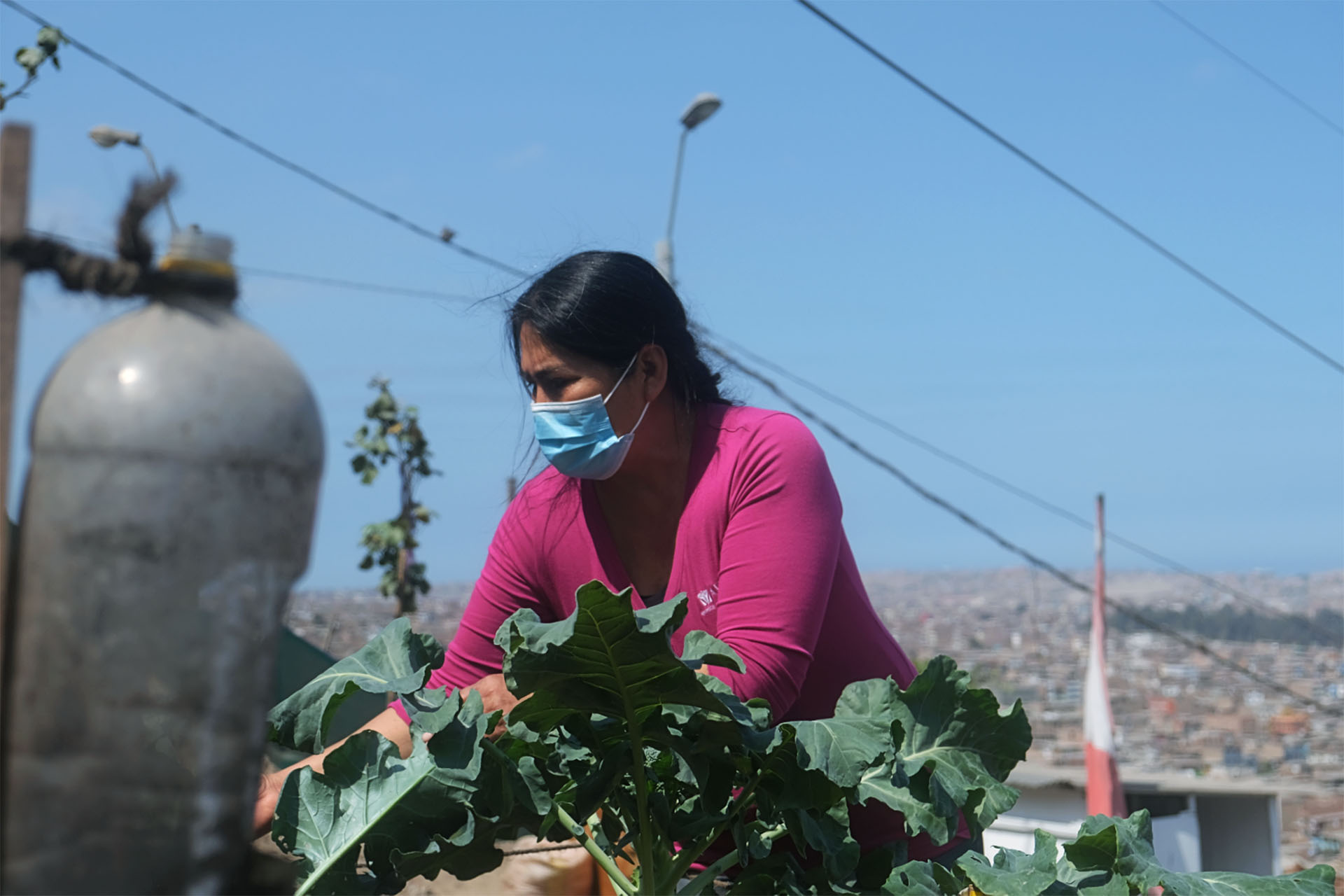Asencia Tuamana, 55, is a community organizer in Cerro Papa, a neighborhood in the south of Peru’s capital, Lima. She started the Bello Horizonte olla común, or communal kitchen, in September 2020 to share resources during a nationwide lockdown that left millions of Peruvians with no income. Ingredients are bought in bulk, which keeps the price down, and meals are sold at cost, with the proceeds used to buy more ingredients. Her comments have been translated from Spanish and edited for length.
***
Nothing could have prepared me for what the last two years have been like. This was always a rough neighborhood, so it was pretty clear from the start that being a community organizer was never going to be easy, but the pandemic and current rise in prices have been more difficult than I could have anticipated. I’ve always believed, however, that we’re put on this planet for a reason, and it is not to sit still and acquiesce.
It’s funny, when we first set up the communal house, people mocked us. They said we were wasting our time, that we had nothing better to do. They even said it to my face. But our olla común serves up to 140 people every day from Monday to Friday, and a lot of the people that used to make fun of us come here for their daily lunch.
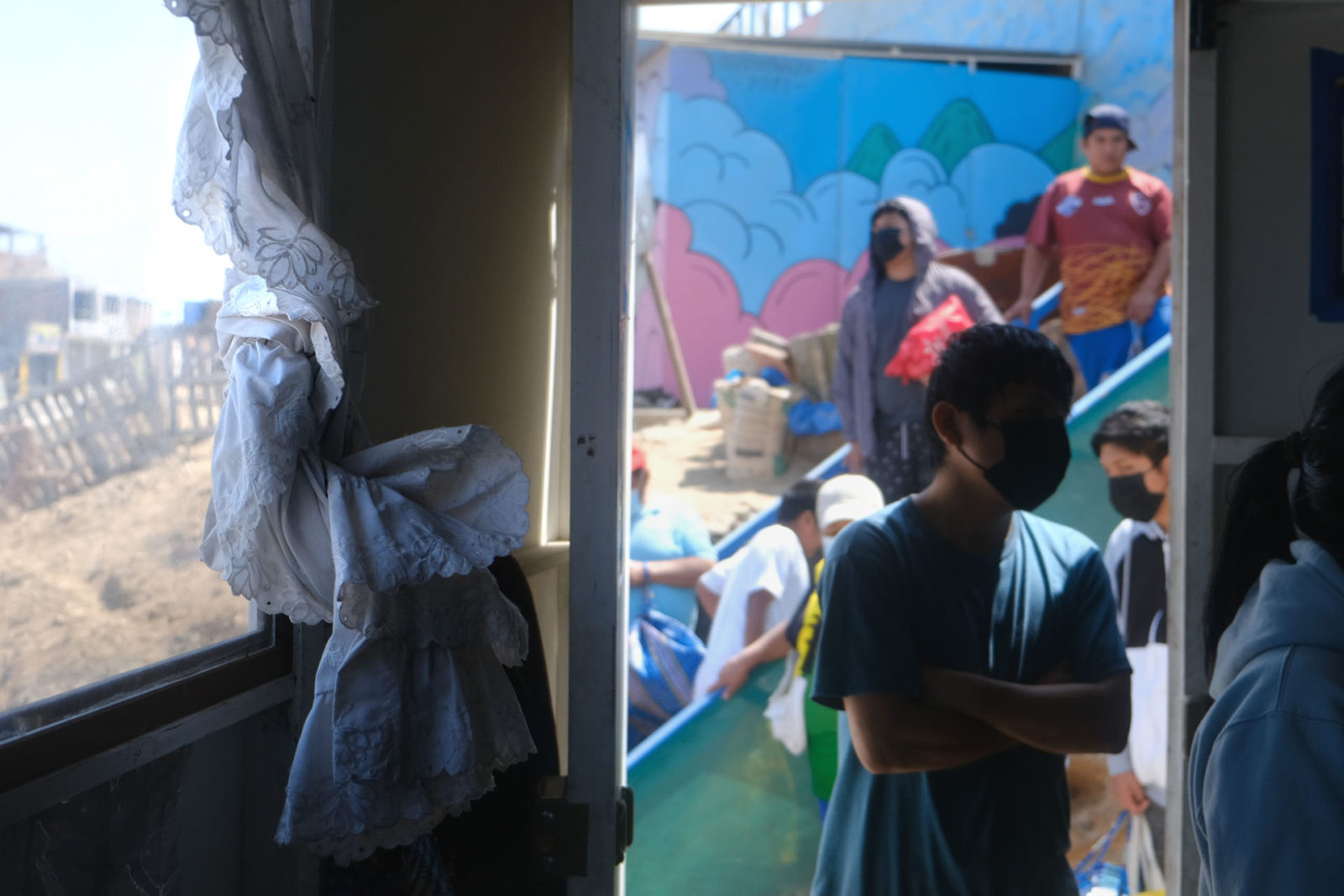
We started the olla in the first year of the pandemic. After a while people were going to bed on an empty stomach. Everything was borrowed: pots, plates, wooden spoons. I went door to door, asking if there was anything anyone could spare. We managed to raise 100 soles ($27) to buy the ingredients we needed for the first few ollas. We’ve learned a lot since, but making ends meet has become increasingly hard. All the ollas I know have raised their prices by at least 50%. We’ve managed to limit the increase to between 2 and 2.5 soles, but it takes a lot of work. The price of some vegetables has tripled, eggs have doubled. A gallon of gas used to cost 35 soles but it can now go up to almost 60 soles.At the olla we always serve an entree, usually soup, and a main course. We make sure to have carbs and some sort of protein: chicken feet, cow lungs, maybe eggs when they’re not too expensive. Due to the rise in food prices, we’ve been told by the government we can collect vegetables that are being thrown out from a nearby market after closing time, but it’s easier said than done. Sellers yell at you and insult you, and I don’t want to expose the women here to that kind of treatment. It’s humiliating and you’re too vulnerable. So far, I’ve made the decision to keep buying vegetables. I do know of a place nearby where we sometimes find decent bell peppers and other vegetables that were going to waste, so we sometimes go there to collect them and just cut out anything that’s rotting.
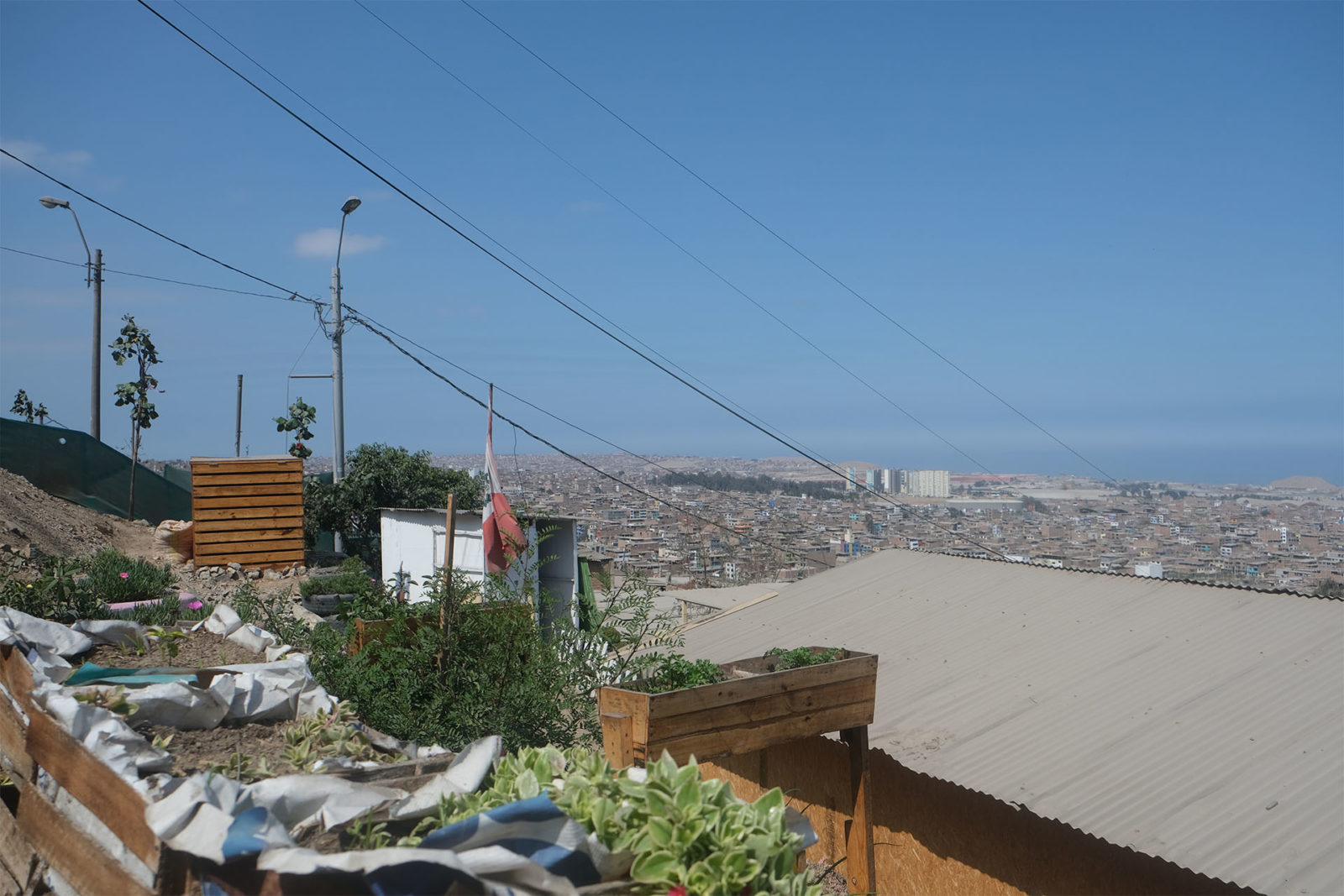
My proudest achievement is our vegetable patch. It has allowed us to endure the worst moments. During the farmers’ protests nothing was even being sold and, if it was, there was no way we could afford it. Our vegetable patch got us through that. I grow beets, leeks, celery, broccoli and what not. But we don’t have running water here and just doing the dishes and watering the plants is getting more expensive. I used to pay 30 soles for water and it’s now up to 70 soles.
But it’s not just the money, everything is harder now. I mostly work the vegetable patch alone. It’s difficult to think and act collectively when things are so rough, especially when you don’t have that drive ingrained in you. I’m not sure why I see things differently. We came to Lima when I was a child, after my father was murdered in times of terrorism, and I sometimes think that shaped me. I know we can’t get far on our own.
I still have big plans for our neighborhood. I’d love to expand our vegetable patch, but I need help… and money. Every week, I set some money aside for our emergency fund. I was hoping to eventually use it to set up a water pipe, but with rising prices it’s getting harder not to dip into the fund just to cover basic costs. We’ve had to get creative. We now compost everything and use it in the patch. We’ve also learned how to reuse cooking oil to make organic washing detergent. I water the vegetable patch with the water we use to rinse the pots and dishes and so on. It may not sound like a lot, but it all adds up. We always find new ways.
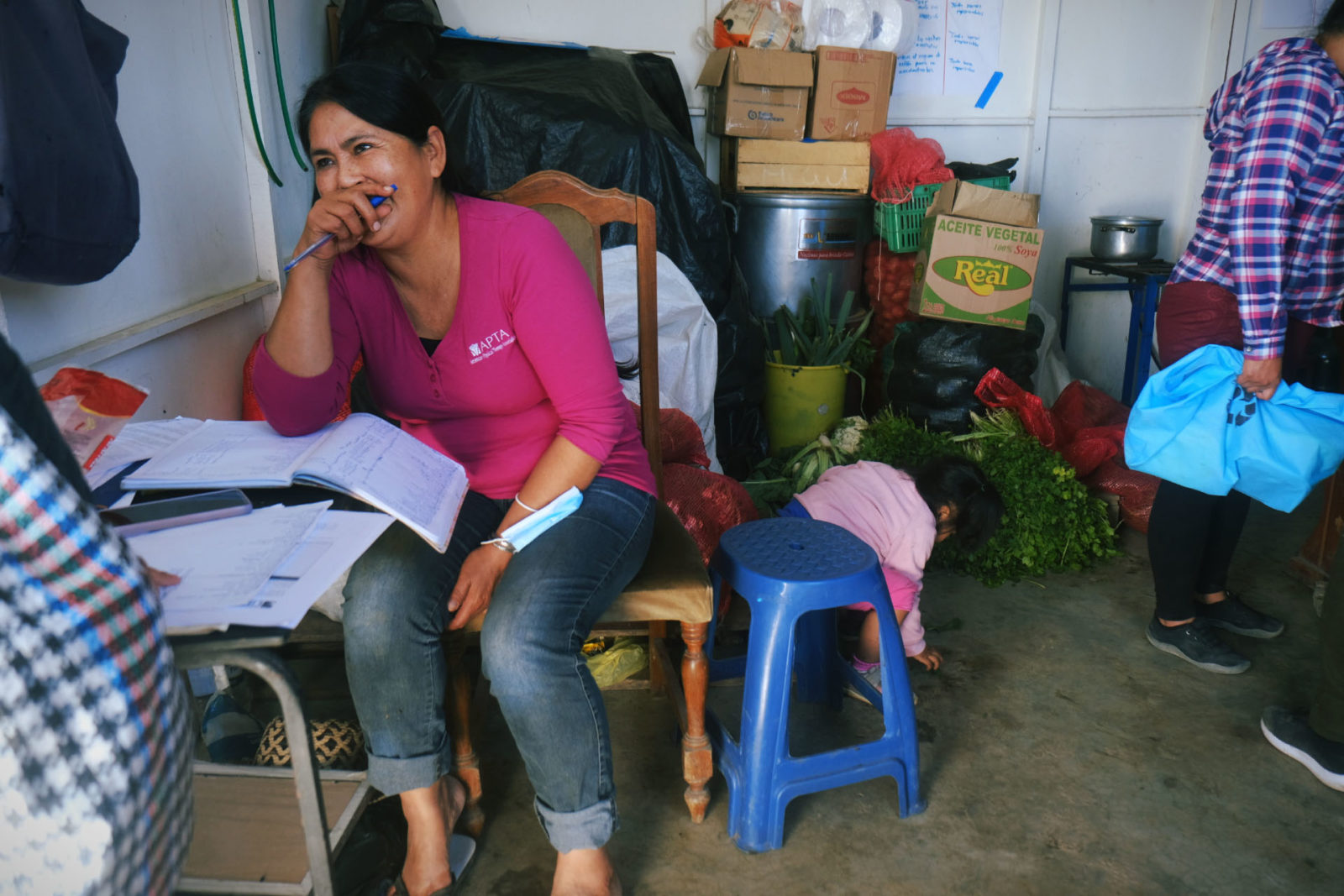
Editor’s note: The Fuller Project and the Nation produced this dispatch as part of our “Financial Pandemic” project, a collection of firsthand accounts on how the cost-of-living crisis is affecting the daily lives of women around the world.
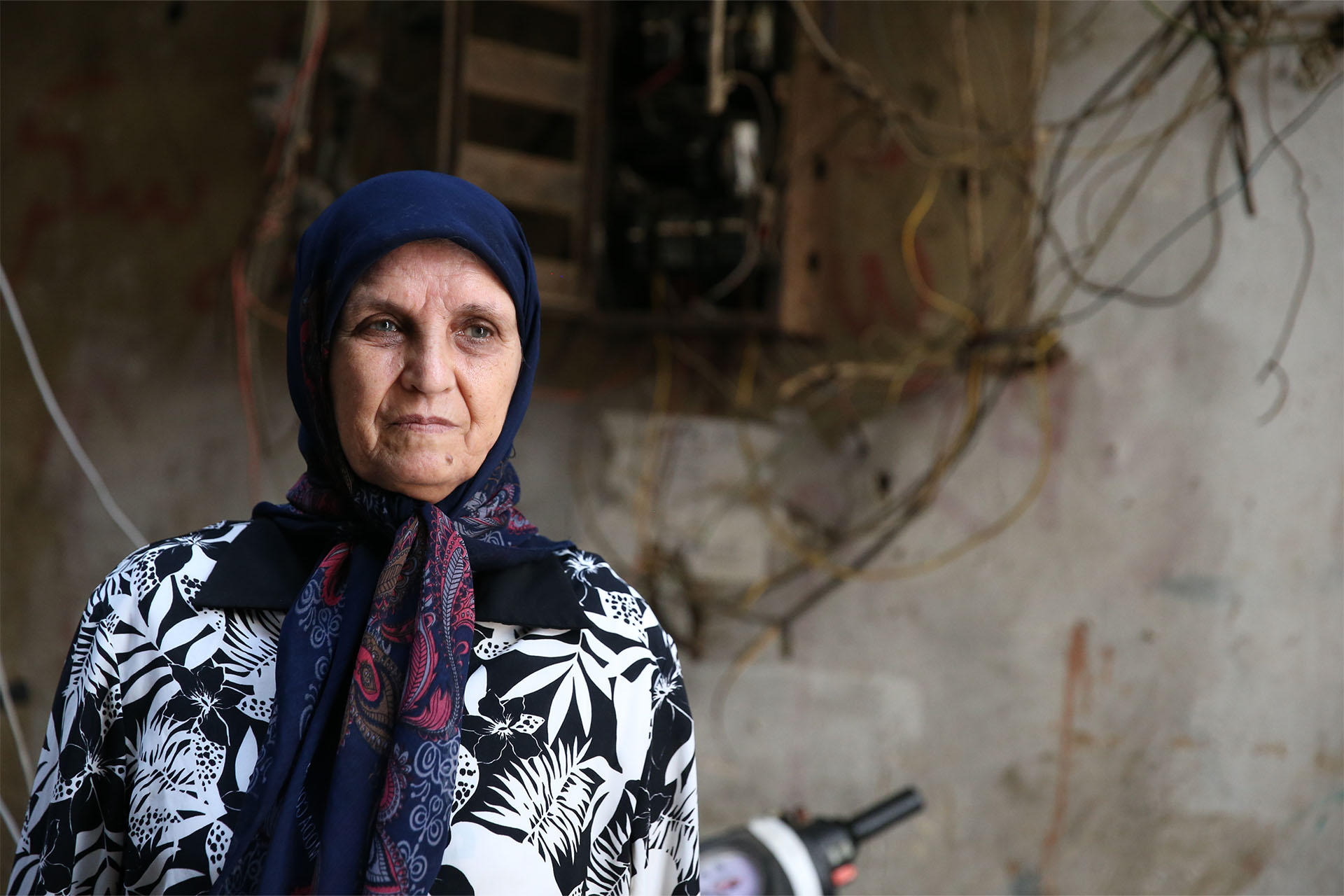
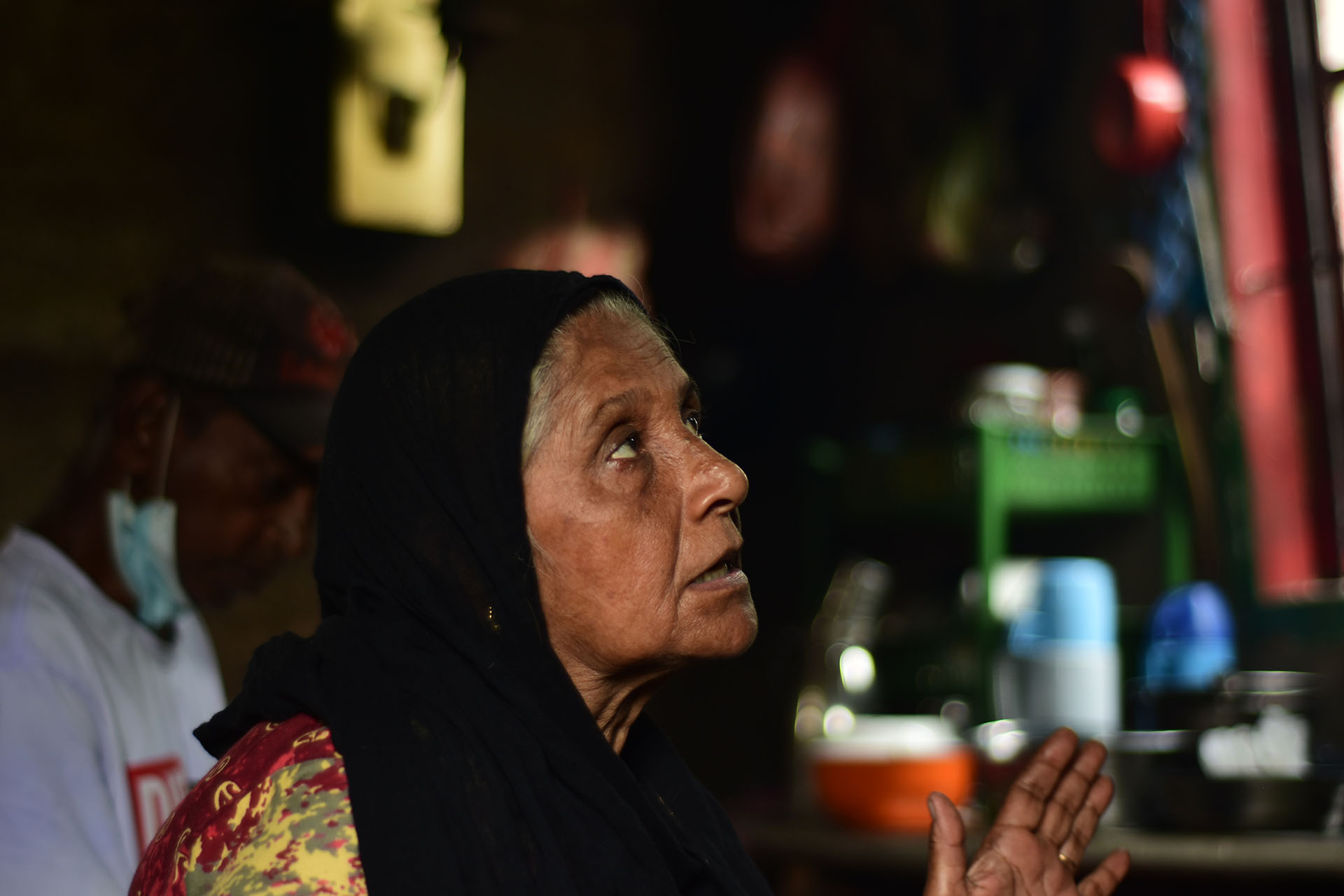
Financial Pandemic: ‘Sri Lanka is not a country for poor people now’
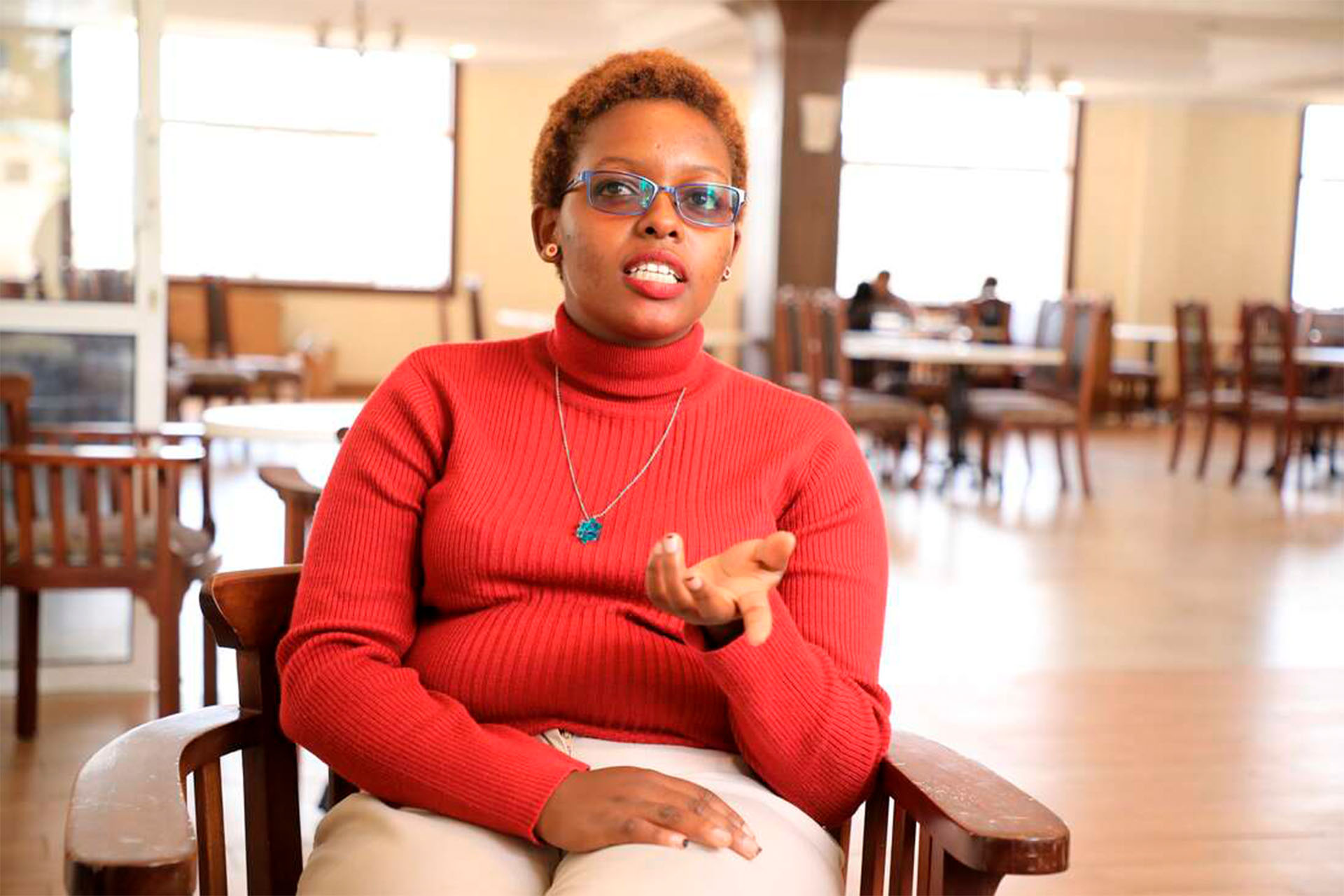


 Jimena Ledgard
Jimena Ledgard